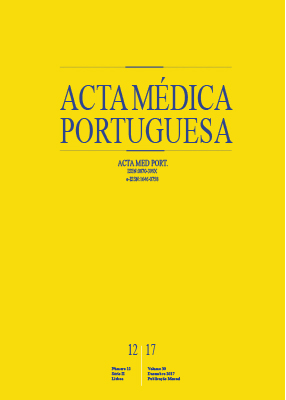Limited Health Literacy in Portugal Assessed with the Newest Vital Sign
DOI:
https://doi.org/10.20344/amp.9135Keywords:
Health Literacy, Portugal, Prevalence, Validation StudiesAbstract
Introduction: In Portugal, health literacy has started to be addressed through national policies, but research on the topic is still scarce. We aimed to estimate the prevalence and sociodemographic correlates of limited health literacy in Portugal using an existing health literacy instrument, the Newest Vital Sign.
Materials and Methods: Following cross-cultural adaptation of the instrument, a sample of 249 participants was evaluated to assess reliability and construct validity of the Newest Vital Sign; the latter was tested assuming physicians would score highest, followed by health researchers, then by engineering researchers and finally by laypersons from the general population. We applied this validated version in a representative sample of 1544 Portuguese-speaking residents in Portugal aged between 16 and 79 years and quantified the associations between limited health literacy and sociodemographic characteristics.
Results: The instrument showed high reliability (Cronbach’s α = 0.85). Health-related occupation showed association with higher scores in the Newest Vital Sign (p trend < 0.001). The prevalence of limited health literacy in the Portuguese population was 72.9% (95% CI: 69.4 - 76.4). We found no differences between men and women, but persons with limited health literacy were significantly older (p < 0.001) and less educated (p < 0.001).
Discussion: The burden of limited health literacy in Portugal is higher than that in other European countries. It should drive a universal precautions approach to health communication at all levels of the health system.
Conclusion: We validated a brief and simple instrument and estimated the prevalence of limited health literacy in the literate Portuguese population at roughly three out of four people.
Downloads
Downloads
Published
How to Cite
Issue
Section
License
All the articles published in the AMP are open access and comply with the requirements of funding agencies or academic institutions. The AMP is governed by the terms of the Creative Commons ‘Attribution – Non-Commercial Use - (CC-BY-NC)’ license, regarding the use by third parties.
It is the author’s responsibility to obtain approval for the reproduction of figures, tables, etc. from other publications.
Upon acceptance of an article for publication, the authors will be asked to complete the ICMJE “Copyright Liability and Copyright Sharing Statement “(http://www.actamedicaportuguesa.com/info/AMP-NormasPublicacao.pdf) and the “Declaration of Potential Conflicts of Interest” (http:// www.icmje.org/conflicts-of-interest). An e-mail will be sent to the corresponding author to acknowledge receipt of the manuscript.
After publication, the authors are authorised to make their articles available in repositories of their institutions of origin, as long as they always mention where they were published and according to the Creative Commons license.









